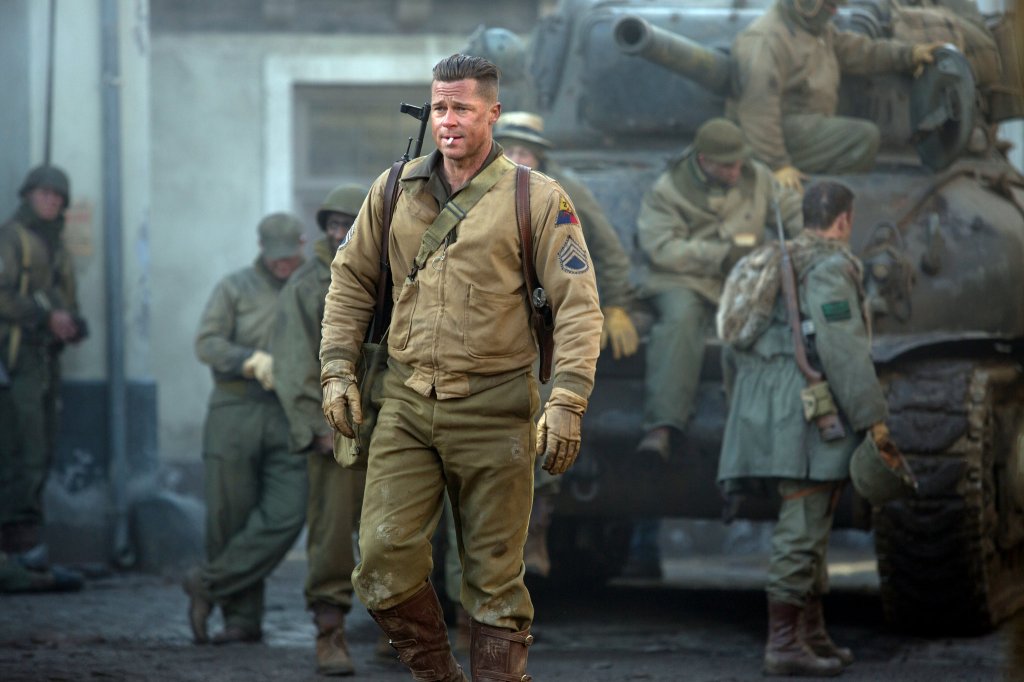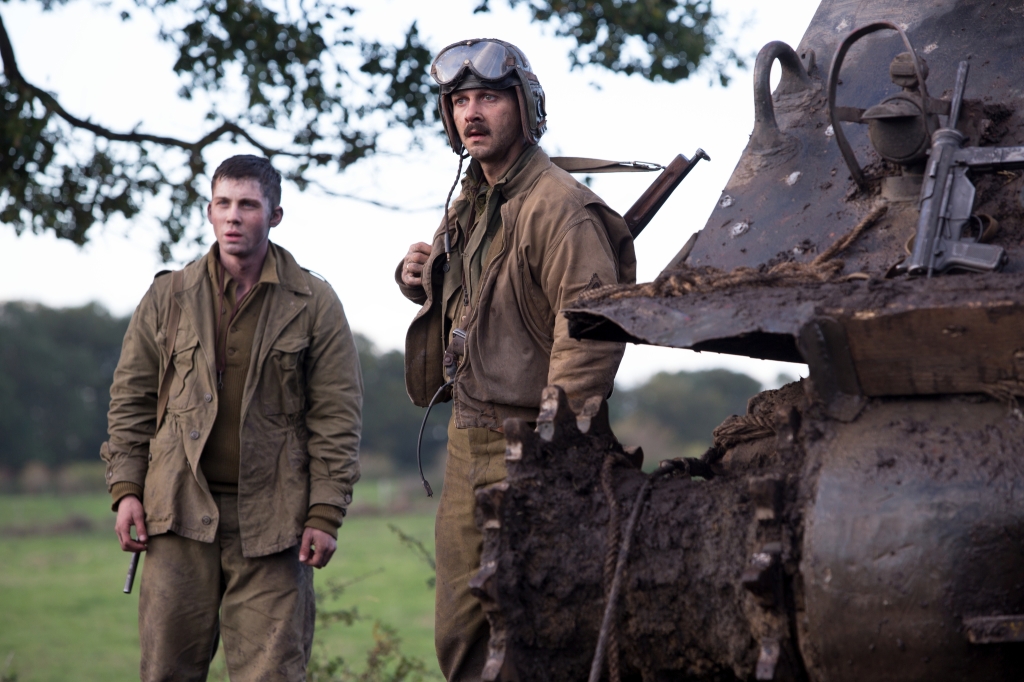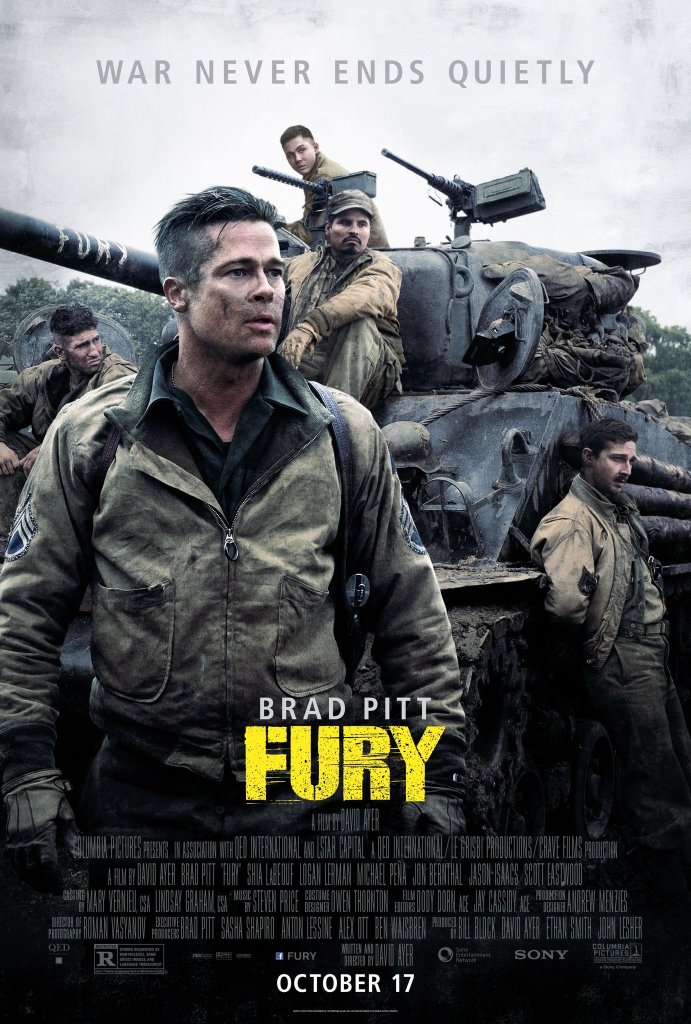Synopsis- By the end of the Second World War, the allies in the European theatre are into their final showdown. Things become tough for Don Collier, a German tank commander, while counter-attacking the enemy.
Director- David Ayer
Cast- Brad Pitt, Shia LaBeouf, Logan Lerman
Genre- War, Historical, Drama
Released- 2014
David Ayer’s Fury (2014) is a visceral immersion into the raw, brutal world of tank warfare during World War II, a film that grips you from the opening sequence and refuses to let go until the final frame. Channelling the relentless intensity of Sam Peckinpah and the moral complexity of Stanley Kubrick, Ayer crafts a war movie that is at once harrowing, poignant, and unflinchingly honest. It’s an experience that leaves you both exhausted and profoundly moved, much like the soldiers it portrays.

At the heart of Fury is Brad Pitt’s performance as Don “Wardaddy” Collier, a battle-hardened tank commander who carries the scars of war in his steely gaze and stoic demeanour. Pitt, who has given us a plethora of memorable performances, delivers what is arguably his finest work here. There’s a gravitas to his portrayal, a weight of unspoken loss and unrelenting duty that anchors the film. He embodies the paradox of war—a man who must become a killer to protect his men, yet struggles to retain a shred of his humanity.
The ensemble cast surrounding Pitt is equally impressive. Shia LaBeouf, as the devout gunner Boyd “Bible” Swan, offers a surprising depth, bringing a quiet intensity and moral conviction that counterbalances the relentless violence. Logan Lerman’s Norman Ellison, a young and inexperienced typist thrust into the chaos of war, serves as the audience’s surrogate, his transformation from naïve recruit to battle-weary soldier a powerful commentary on the corrupting influence of violence. Michael Peña and Jon Bernthal round out the crew, each delivering gritty, nuanced performances that add layers to the narrative.

Ayer, who wrote and directed, displays an acute understanding of the claustrophobic nature of tank warfare. The film’s authenticity is underscored by meticulous attention to detail, from the oppressive interiors of the Sherman tank to the chaotic, mud-splattered battlefields. The combat scenes are executed with a visceral realism that is both thrilling and horrifying. Ayer does not shy away from the brutal realities of war; the violence is graphic and unrelenting, yet never gratuitous. It serves to underscore the film’s central theme—the dehumanizing and destructive nature of war.
The cinematography by Roman Vasyanov is a visual feast, capturing the bleak beauty of war-torn Europe with a haunting lyricism. The stark contrasts of light and shadow, the washed-out colours, and the relentless grime and mud create a palpable sense of place and time. The film’s score, composed by Steven Price, complements the visuals perfectly, its haunting melodies and thunderous crescendos heightening the emotional impact.

Fury is not merely a war film; it’s a meditation on the human condition under the most extreme circumstances. It explores themes of brotherhood, sacrifice, and the moral ambiguities of war with a raw honesty that is both rare and refreshing. Ayer eschews the glorification of combat, instead presenting it as a brutal, soul-crushing ordeal that leaves no one unscathed.
In a time when war films aren’t as common, Fury stands out as a modern classic. It’s a film that demands to be seen, not just for its technical prowess and superb performances, but for its unflinching portrayal of the horrors of war and its profound commentary on the human spirit. This is cinema at its most powerful and affecting—a tour de force that will resonate long after the credits roll.


Leave a comment